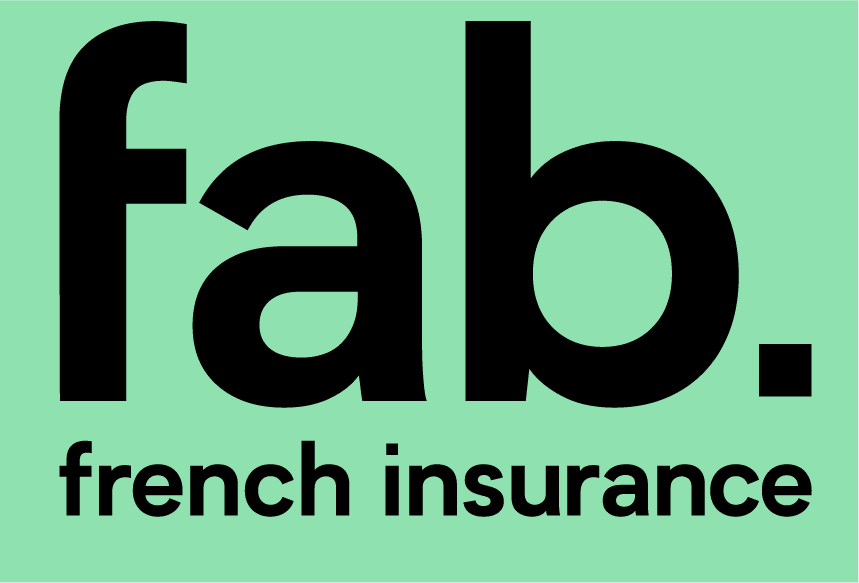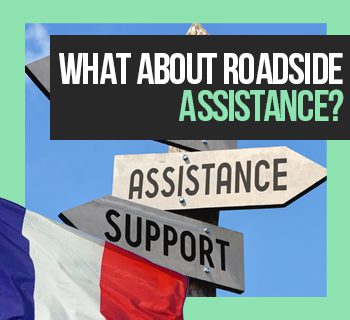What do I do If I Need Roadside Assistance in France?
Everyone knows that one of the main reasons you get insurance on your car is to give you the peace of mind that in the event of something going wrong, you don’t have to worry. We pay our premiums each month so that we can take a car trip knowing that if there's a mishap, we will be able to get back on the road as soon as possible with minimal interruptions.
Now even though cars do break down all the time, most people with a car insurance policy won’t actually ever need to use all or even any of the services provided in that policy. This should reassure you but it should also highlight the fact that one thing some insurance holders realise is that in the event of something actually going wrong, they don’t really know what to do or who they should actually call.
Now imagine dealing with all of this in another country like France and you might have yourself a very confusing time. Don’t worry though, I’ve got you covered with this simple list of what to do if you need roadside assistance or have a non-critical car accident in France.
First thing’s first: obviously safety is priority number 1. In this list, I’m not talking about instances where danger is imminent. This is about those situations where all involved parties are safe and a vehicle is either damaged or immobilised.
Step 1: Call the assistance line.
This is perhaps one of the most important things to remember. You might have the urge to contact your insurance company or broker but they’re not actually the best people to contact right now. They may have advised you on the best policy to choose but at 2 O’clock in the morning when you’re stuck on the side of the highway between Paris and Normandy, your insurance broker is not really going to be able to sort things out for you easily and quickly.
There’s actually a 24 hour service that is designed for these precise situations. This is a dedicated roadside assistance line. It’s an independent body designed to help deal with these situations, they can send out repair people to fix minor problems onsite or get you towed to a garage.
The number for roadside assistance is always located in your policy but the easiest place to find it is on the little insurance sticker you have on the windshield of your car.
Calling the assistance line first will help to make sure you don’t really have to pay for much up front at all. Anything that the assistance line takes care of is normally billed directly to your insurance company.
It’s worth pointing out here that you can call the assistance number if you have a minor situation like a flat tyre or battery but remember that spare parts aren’t usually covered by insurance but they can always tow you to a garage if you get stuck, even if it’s because of an empty gas tank.
Step 2: Fill out any paperwork.
If there’s another party involved you will need to fill out paperwork detailing the incident and you have 48 hours to get this paperwork to your insurer. As with most insurance matters, as much detail as possible helps and the sooner you have it together, the better.
Step 3: If you are towed.
If you need to be towed make sure you check with the assistance line if it’s possible to be taken to a garage that partners with your insurance company. Once again, this is about making sure any upfront expenses are kept to a minimum.
If a car needs to be towed and it’s taken to a non-partnered garage, it doesn’t necessarily mean that your insurance provider won’t cover it, but it can often mean that you need to pay for everything upfront and then claim it back from your insurance company after.
Step 4: If your car needs to be fixed.
Getting you back on the road is mainly about what’s actually wrong with the vehicle and if fixing this issue is covered under your insurance policy. If the problem is covered, your insurance company or broker will liaise with the service provider and the whole process should happen pretty quickly (as quickly as possible but, naturally, sometimes there can be delays when it comes to parts or services). Remember that replacing spare parts isn’t generally covered no matter how great your policy is.
If the cost of repair is over a certain amount, no work can actually be done until an independent assessor has checked it out. This can take longer because there aren’t as many assessors as there are vehicles. If this happens, and it is covered by your policy you will be given access to a loan vehicle.
Keep in mind that within most policies, a loan vehicle is USUALLY only provided for a maximum of 2 weeks. If the repair time will take longer than this there might be some additional costs to make sure you have a loan car. This is one example of a case where it can be better to have a broker rather than an insurance policy directly with the company. Brokers often have a little more negotiating power than insurance policy holders since they provide insurance companies with so many customers.
Wrapping it all up.
Once an independent assessor has inspected the vehicle, the insurance company will confirm the amount they have agreed to cover. Then all involved parties need to explicitly agree to this.
Your car will then be fixed and you will be ready to hit the road again. This time with the confidence that you know what to do if something goes wrong.


